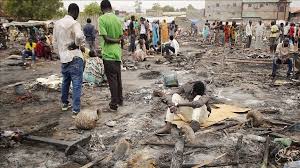October 20, 2024 – Khartoum, Sudan
The health system in southern Khartoum, Sudan’s capital, is on the brink of collapse as epidemics spread uncontrollably amid a prolonged civil war. Residents face severe challenges accessing essential healthcare, with medical facilities either partially shut down or completely out of service. The ongoing conflict between the Sudanese Armed Forces and the Rapid Support Forces, which erupted in April 2023, has significantly worsened the health crisis in the region.
Insecurity and recurring violence have forced several medical facilities to shut down. Doctors Without Borders (Médecins Sans Frontières), a global medical charity, was recently forced to suspend its operations at the Al Shaheed Waddalatela clinic due to escalating security threats. The charity described its decision as “extremely difficult” after three separate armed robberies endangered both staff and patients.
Rasha Idris, an official at the Khartoum State Health Ministry, expressed growing concerns about a “significant shortage of medicines in all medical facilities in southern Khartoum.” Local health authorities are struggling to secure medical supplies and are currently coordinating with international organizations for urgent medical aid.
Adding to the crisis, the obstetrics and gynecology department at Bashair Hospital—one of the two main hospitals in the area—was forced to shut down due to a shortage of blood. In a desperate plea, the hospital called on local citizens to donate blood, warning that its emergency services could be halted within 24 hours if the blood bank is not replenished.
The situation in Khartoum mirrors the broader devastation across the country. Healthcare facilities in Darfur, West Kordofan, Gezira, and Sinnar have been similarly disrupted by the conflict. The violence has left large swathes of the population without access to life-saving medical care.
Sudan is also grappling with outbreaks of several epidemic diseases, including cholera, malaria, measles, and dengue fever. The Ministry of Health has reported over 25,000 cases of cholera, with more than 700 related deaths, while over 2,500 cases of dengue fever have been recorded. The spread of these diseases, compounded by the breakdown in healthcare services, threatens to spiral further out of control.
As the conflict and the health crisis continue unabated, the people of southern Khartoum and other affected regions face an uncertain future. Without immediate intervention and stabilization, the collapse of healthcare services could lead to even more catastrophic consequences.












